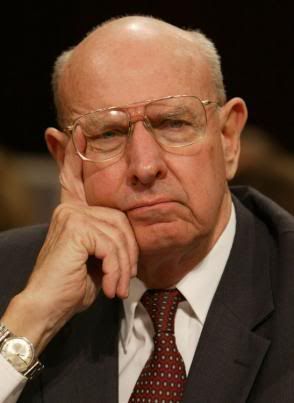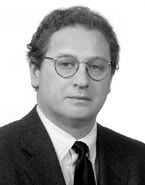Not Seeing Storm Troopers, Not Scratching My Head
David Kravets suggests that everyone talking about the Cheneyesque brief DOJ submitted in the al-Haramain suit last Friday has been scratching their heads.
Legal scholars, the blogopshere and the twitterati have been scratching their heads for a week following the Obama administration’s assertion that it might "withdraw" (.pdf) classified documents at the center of a closely watched spy case.
Some are wondering whether the feds will use storm-trooper-like tactics to remove the data from the case.
Just for the record, I am not scratching my head. Nor am I, for that matter, seeing storm troopers.
As a reminder (I’ve already laid this out here for the head scratchers), here is what happened.
- The Ninth Circuit refused the Administration appeal of Judge Walker’s ruling that he should review the wiretap log to see if it shows al-Haramain has standing (meaning that Bush broke the law). This set up the next step, which is that Walker would review the document, which is where we’re at now.
- Faced with the prospect of a judge looking at the representations the Bush Administration made about the program three years ago, DOJ first said, "please don’t disclose anything without checking with us first." (Okay, admittedly they said this using Cheneyesque language.)
- Then, they confessed that Bush had
liedsubmitted inaccurate information and presumably (in the form of four declarations, three of them from the people who first described this program to the Court) corrected that inaccuracy.
Now, keep a few things in mind. First, with the declarations submitted on Friday, there is presumably a somewhat detailed and maybe even accurate description of the warrantless wiretap program (as well as a description of how Bush lied submitted inaccurate information) in the hands of Judge Walker.
Second, DOJ has claimed (though not proven the case) that al-Haramain has ties to terrorist organizations. I don’t know whether this is true or not, whether they believe this or not, or whether this is just residual fear-mongering left over from the Bush Administration, but for the sake of argument, let’s pretend that at least some of the people involved believe that al-Haramain has ties to al Qaeda.
DOJ is now faced with the prospect that because someone fucked up by handing al-Haramain something they didn’t mean it to have, they are about to enter into legal proceedings that might result in al-Haramain’s lawyers, almost alone of anyone in the US, seeing the details of the warrentless wiretap program. Read more →

 Thomas Pickering is a career diplomat who served as U.S. ambassador to Jordan (1974–1978), Nigeria (1981–1983), El Salvador (1983–1985), Israel (1985–1988), the United Nations (1989-1992), India (1992–1993) and Russia (1993–1996). He is now vice chairman of
Thomas Pickering is a career diplomat who served as U.S. ambassador to Jordan (1974–1978), Nigeria (1981–1983), El Salvador (1983–1985), Israel (1985–1988), the United Nations (1989-1992), India (1992–1993) and Russia (1993–1996). He is now vice chairman of  Vice Admiral Lee Gunn (Ret.), who served in the final three years of his 35-year military career as Inspector General of the Department of the Navy, is now president of the Institute of Public Research at the
Vice Admiral Lee Gunn (Ret.), who served in the final three years of his 35-year military career as Inspector General of the Department of the Navy, is now president of the Institute of Public Research at the  John J. Farmer Jr., the former attorney general of New Jersey was Senior Counsel to the 9/11 Commission. He is a
John J. Farmer Jr., the former attorney general of New Jersey was Senior Counsel to the 9/11 Commission. He is a  Frederick A. O. Schwarz, Jr. Chief Counsel at the
Frederick A. O. Schwarz, Jr. Chief Counsel at the  David B. Rivkin, Jr. is a
David B. Rivkin, Jr. is a  Jeremy Rabkin, a renowned scholar of internationalaw, is a professor at George Mason University School of Law in Arlington, Va. A member of the board of directors of the
Jeremy Rabkin, a renowned scholar of internationalaw, is a professor at George Mason University School of Law in Arlington, Va. A member of the board of directors of the 